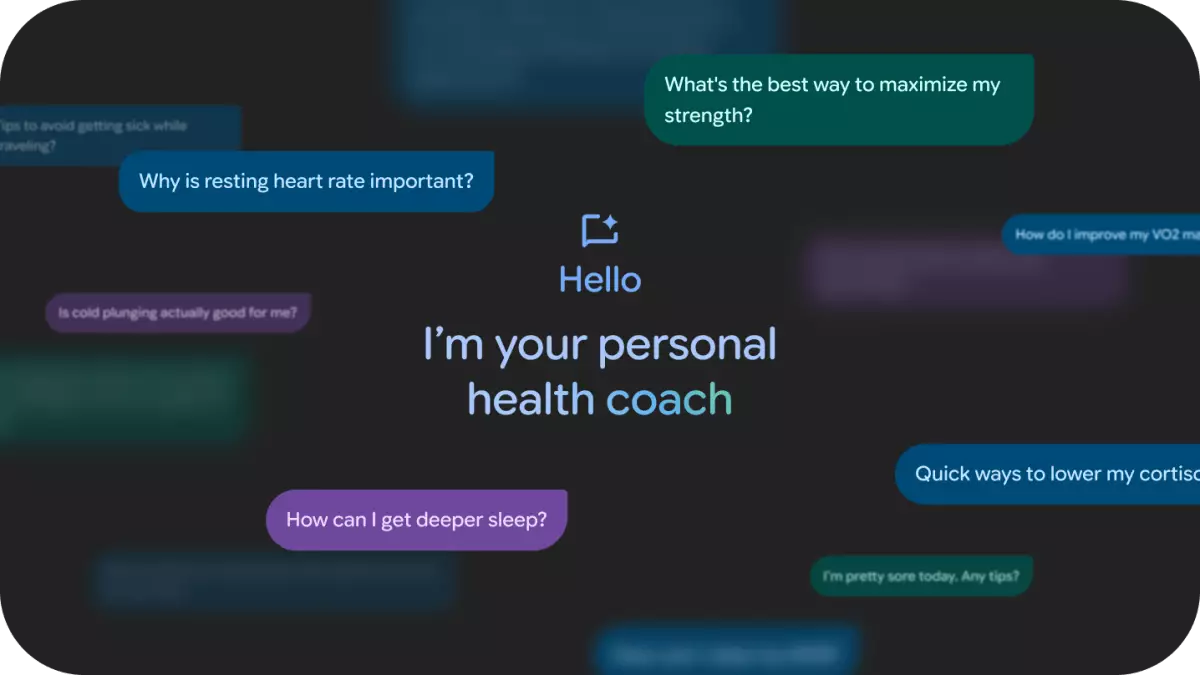In a bold move that signals the future of health and fitness technology, Google unveiled its latest innovation: an intelligent, AI-powered personal health coach integrated into Fitbit devices. The announcement, made during the company’s “Made by Google” event, underscores a critical shift from static data collection to an interactive, adaptive wellness experience. This isn’t merely about tracking steps or sleep; it’s about creating a truly personalized health ecosystem—one that learns, adapts, and proactively guides users toward better living.
This AI coach amalgamates the versatility of a fitness trainer, sleep advisor, and wellness consultant into a seamless interface. It’s designed to analyze real-time metrics from Fitbit trackers, Pixel Watches, and even auxiliary devices like smart scales and glucose monitors. This interconnected setup empowers the AI to deliver tailored recommendations, adjust workout plans dynamically, and refine sleep strategies based on deeply personalized data. What sets this approach apart is the emphasis on customization driven by user interaction and ongoing analytics rather than one-size-fits-all routines.
The real breakthrough is in the coach’s capacity to evolve. By chatting about goals, preferences, and constraints, users can generate bespoke routines that are not only feasible but optimized for their unique physiology and lifestyle circumstances. For instance, if an individual wakes up feeling unrested, the AI intervenes by adjusting upcoming workouts or sleep schedules to prevent overexertion and promote recovery. This continual learning loop elevates the health coaching experience from reactive to proactive, which could significantly impact long-term wellness outcomes.
Empowering Users with Adaptive, Data-Driven Insights
The true magic unfolds as the AI interprets complex data—sleep stages, activity levels, readiness scores—and translates them into actionable insights. Advanced algorithms now offer granular understanding of sleep quality, helping users decipher whether their rest is sabotaging their efforts or if they need more sleep to perform at their peak. Personalized sleep schedules are designed to adapt to daily activities, making the often vague advice of “getting enough rest” into a precise science that caters to individual needs.
Moreover, the AI coach isn’t just a passive advisor; it interacts in natural language, acting as a responsive companion. Users can ask pointed questions like, “Should I rest today or push through a workout?” or “What exercises are most effective for weight loss based on my profile?” This conversational element makes the technology feel less like a tool and more like a personal trainer with a deep understanding of individual goals.
Another significant aspect is the way the system facilitates flexible, real-time adjustments. Life’s unpredictability—injuries, busy schedules, or unexpected fatigue—is seamlessly integrated into the coaching algorithm. Users aren’t stuck with rigid plans; instead, they’re supported in making informed modifications that keep them motivated and safe. This adaptability could dramatically reduce the dropout rate often associated with fitness programs grounded in rigid routines.
The Broader Implications for Wellness and Self-Cudgel
By embedding AI deeply within everyday devices and routines, Google is pushing toward a future where self-care is intuitive, personalized, and scientifically sound. The integration of such an intelligent coach signals a move from reactive health management—waiting until problems arise—to proactive well-being maintenance. It fosters a mindset where continuous improvement, informed by data, becomes the norm.
However, this evolution also raises critical questions about dependence on technology for health and the potential for overreach. While the AI’s capacity to personalize and optimize routines is impressive, there’s a risk of users trusting algorithmic recommendations over their own body signals or intuition. The technology’s success hinges on striking a delicate balance—empowering users without diminishing their personal agency.
Finally, Google’s strategic partnership with NBA star Stephen Curry as a performance advisor hints at a broader cultural shift: fitness and health are becoming both individualized pursuits and shared dialogues. Such endorsements lend credibility and aspirational appeal, potentially motivating more people to lean into their health journeys with confidence.
In the end, the integration of AI into personal health represents a promising yet complex frontier. It offers unprecedented opportunities for customization, motivation, and overall wellness, but it also demands critical awareness of its limitations and ethical considerations. If navigated wisely, this technological leap could truly revolutionize how we pursue health—making self-care smarter, more responsive, and more empowering than ever before.

